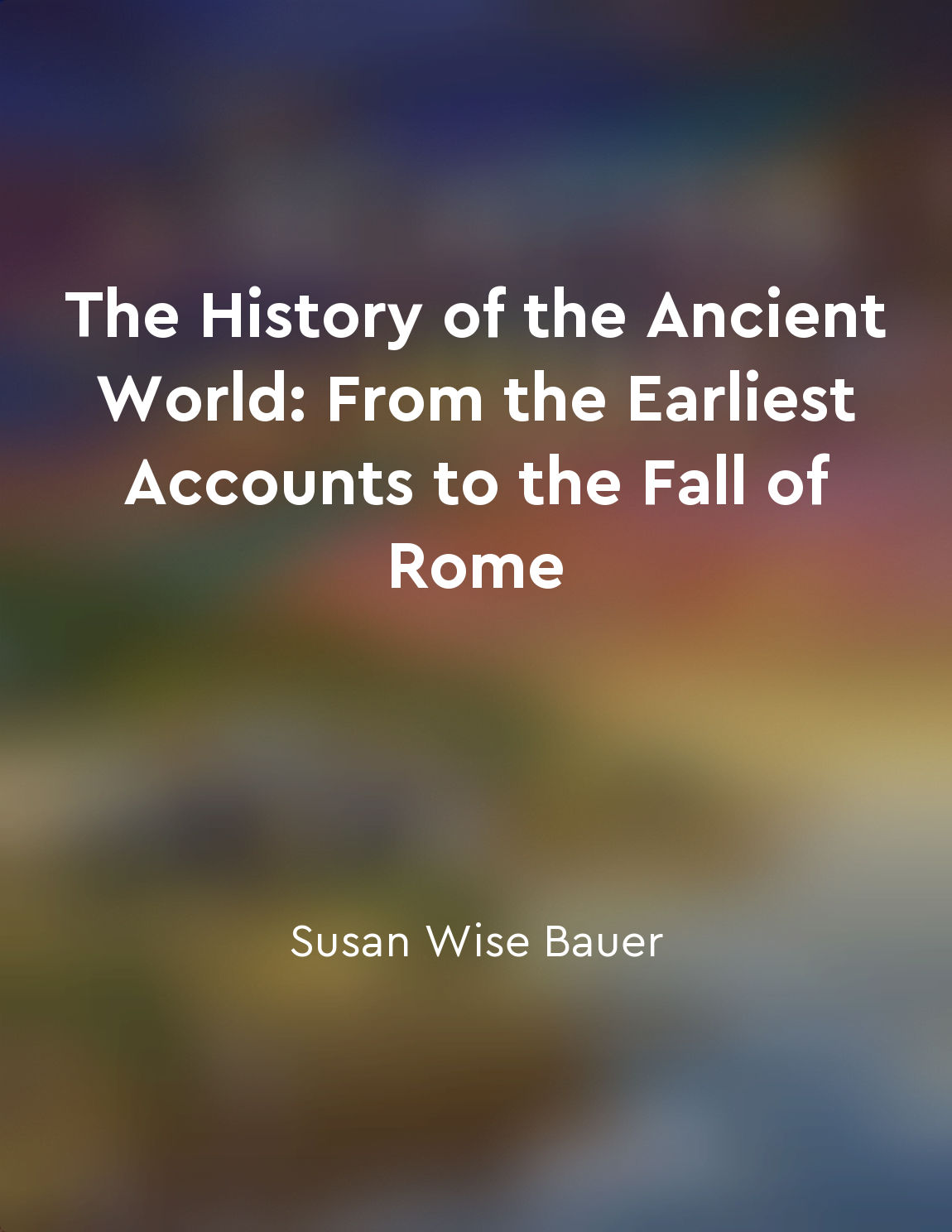The fall of Rome was a gradual process, not a sudden event from "summary" of The Decline and Fall of the Roman Empire by Edward Gibbon
The downfall of Rome was not a swift occurrence, but rather a gradual decline that unfolded over several centuries. The Roman Empire, once a powerful and dominant force in the ancient world, began to show signs of weakness and instability as early as the 3rd century AD. Internal strife, political corruption, economic challenges, and external threats all played a role in the empire's demise. One of the key factors contributing to Rome's decline was the internal turmoil and political instability that plagued the empire. As power struggles and infighting among the ruling elite escalated, the government became increasingly ineffective and unable to address the challenges facing the empire. The lack of strong leadership and a coherent political system weakened Rome's ability to govern effectively and maintain internal stability. Economic troubles also took their toll on the empire, as rampant inflation, high taxes, and a reliance on slave labor led to social unrest and economic hardship for many Romans. The disparity between the wealthy elite and the lower classes widened, leading to growing discontent and disillusionment with the ruling authorities. The declining economy further weakened Rome's ability to defend itself against external threats and maintain its vast empire. External pressures, such as invasions by barbarian tribes and conflicts with neighboring powers, also contributed to Rome's downfall. The empire's borders became increasingly vulnerable as barbarian tribes encroached on Roman territory and posed a threat to the empire's security. The Roman military, once a formidable fighting force, struggled to defend the empire's borders and maintain control over its vast territories.- The fall of Rome was a complex and multifaceted process that unfolded over several centuries. While there were certain pivotal events that hastened the empire's decline, such as the sack of Rome by the Visigoths in 410 AD and the deposition of the last Roman emperor in 476 AD, these events were symptomatic of deeper underlying issues that had been festering for centuries. The gradual erosion of Rome's political, economic, and military institutions ultimately led to the collapse of the once-mighty empire.
Similar Posts
Spengler analyzes historical cycles
Spengler's analysis of historical cycles revolves around the idea that civilizations go through predictable patterns of growth,...
Theban General Epaminondas reforms the army
The Theban General Epaminondas made significant reforms to the army, fundamentally changing the structure and tactics of the Th...
The decline of Roman infrastructure hindered economic growth
The once mighty Roman Empire, which had flourished for centuries, began to see a gradual decline in its infrastructure. The ela...

Chart the spread of Greek culture through conquest and colonization
Greek culture was spread far and wide through a combination of conquest and colonization. The Greeks were not content to remain...
Rome's reliance on slave labor resulted in social unrest
The use of slave labor in Rome played a significant role in shaping the social dynamics of the empire. The economy of Rome was ...
Roman Emperor Augustus's reign of peace
During the time of Roman Emperor Augustus, there was a notable period of peace that brought stability to the vast empire. This ...
Roman Empire's vulnerability to disease
The Roman Empire's vulnerability to disease was a critical factor in shaping its fate. The interconnected world of the Roman Em...
The rise of Germanic tribes further divided the empire
The increasing power of the Germanic tribes presented a significant challenge to the unity of the Roman Empire. As these tribes...
Constantine's conversion to Christianity
Constantine, the Roman emperor, played a significant role in the history of Christianity. His conversion to the faith marked a ...

